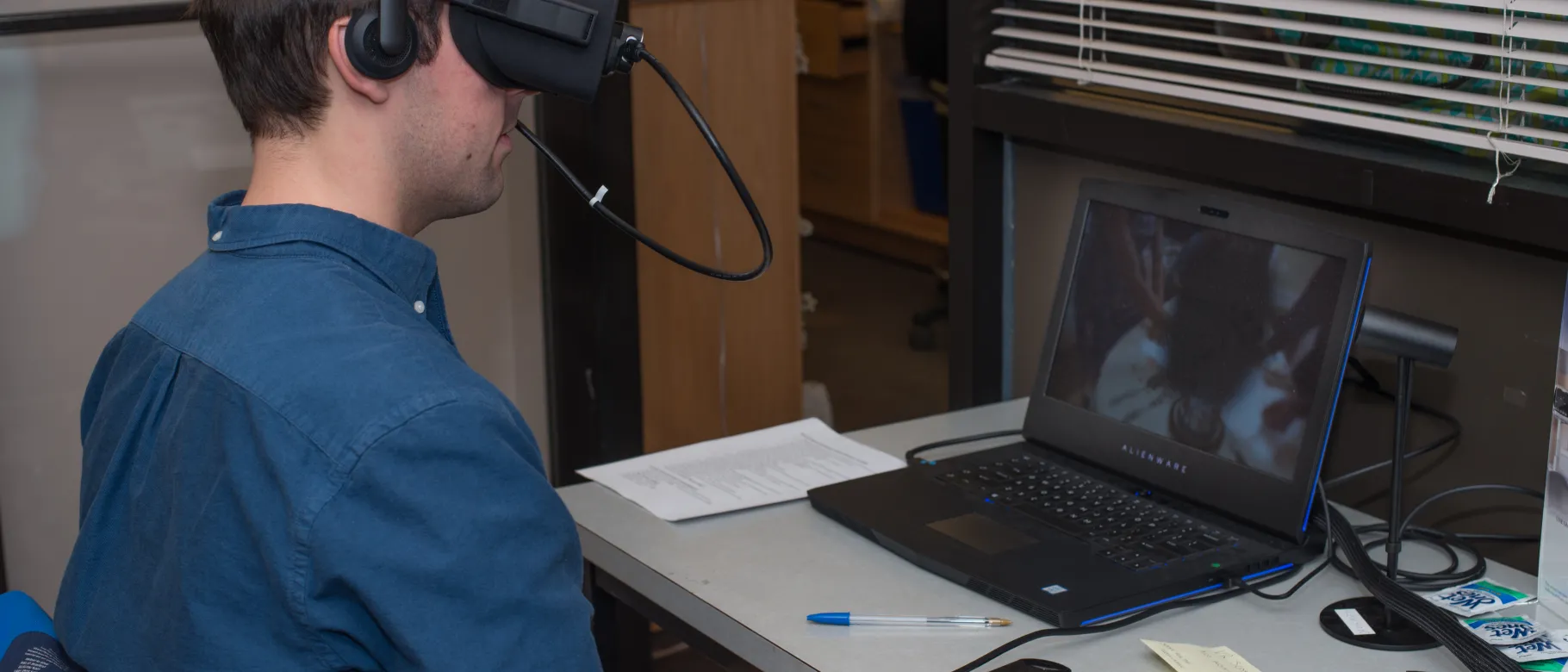‘New Hampshire Union Leader’ article highlights UNE’s leadership in geriatrics education

A New Hampshire Union Leader article titled, “Using virtual reality to teach medical students empathy for elders,” sheds light on the University of New England’s extensive commitment to educating students in providing health care for older adults.
The article describes the innovative “We are Alfred” virtual reality experience the UNE College of Osteopathic Medicine is using to teach medical students empathy toward older adults. Through the program, students experience life as a 74 year-old man with macular degeneration and hearing loss.
"It really puts in perspective what the patient is going through, and you don't really understand it until you experience it," second-year medical student Emily Szuba stated in the article. "Emotionally, it was very difficult and even though you are only Alfred for a few minutes, he still really sticks."
The article points out that the program is just one of many that contributed to UNE being recognized as an Age Friendly University (AFU) by the international Age Friendly University Global Network, which highlights the role higher education plays in meeting the challenges and opportunities of an aging population. The network is led by Dublin City University with support in the United States from the Association for Gerontology in Higher Education. The article states that UNE medical students are required to spend 34 hours on geriatrics in their first two years, which is nearly seven times what most medical schools require.
The Union Leader published a second article titled, “Teaching medical students through personal stories of caring, dying,” about research efforts at UNE to collect stories about caregiving and dying in order to build a database for medical students. According to Professor Marilyn Gugliucci, Ph.D., the project aims to teach students about the humanity of aging and dying. "It's a way to honor their lives and teach students from the older adults' perspective," she said.
Read “Using virtual reality to teach medical students empathy for elders.”
Read “Teaching medical students through personal stories of caring, dying.”
To learn more about the University of New England’s College of Osteopathic Medicine, visit www.une.edu/com
To apply, visit www.une.edu/admissions